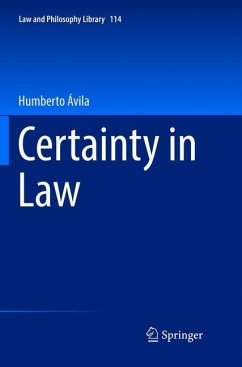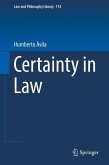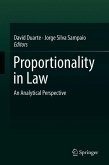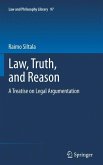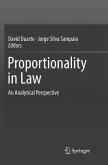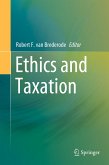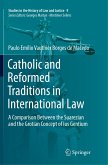Instead of the usualapologetic treatment found in legal doctrine, linked to the determinacy,immutability or predictability of norms, this book treats legal certaintyinnovatively, holistically and in depth. Using a method at once analytical andfunctional, Professor Ávila examines the structural elements of legalcertainty, from its definition and foundations to its various dimensions,normative forces and efficacies, citing a wealth of examples from case law tosupport each of the theses defended.
Nosubject is more important and topical than legal certainty. Problems relatingto lack of understanding, instability and unpredictability of law intensify dayby day everywhere, in civil law and common law countries alike. Normativesources are increasingly diverse in origin (national, international, community)and multiple in nature (legal, contractual, jurisprudential). They changeconstantly, and present increasingly frequent problems of ambiguity andvagueness that significantly hinder their comprehension. This state of affairs,which to a greater or lesser extent is true of any legal order, justifies areturn to the subject of legal certainty. In this book, essential questions areanswered such as: Legal certainty in what sense? Certainty of what, for whom,in whose vision and by whom? When, to what extent, and to what end?
"(...) it is probably themost comprehensive and systematic study ever produced on this subject using theanalytical method." (Riccardo Guastini, Professor of Jurisprudence, Universityof Genoa, Italy)
Nosubject is more important and topical than legal certainty. Problems relatingto lack of understanding, instability and unpredictability of law intensify dayby day everywhere, in civil law and common law countries alike. Normativesources are increasingly diverse in origin (national, international, community)and multiple in nature (legal, contractual, jurisprudential). They changeconstantly, and present increasingly frequent problems of ambiguity andvagueness that significantly hinder their comprehension. This state of affairs,which to a greater or lesser extent is true of any legal order, justifies areturn to the subject of legal certainty. In this book, essential questions areanswered such as: Legal certainty in what sense? Certainty of what, for whom,in whose vision and by whom? When, to what extent, and to what end?
"(...) it is probably themost comprehensive and systematic study ever produced on this subject using theanalytical method." (Riccardo Guastini, Professor of Jurisprudence, Universityof Genoa, Italy)

